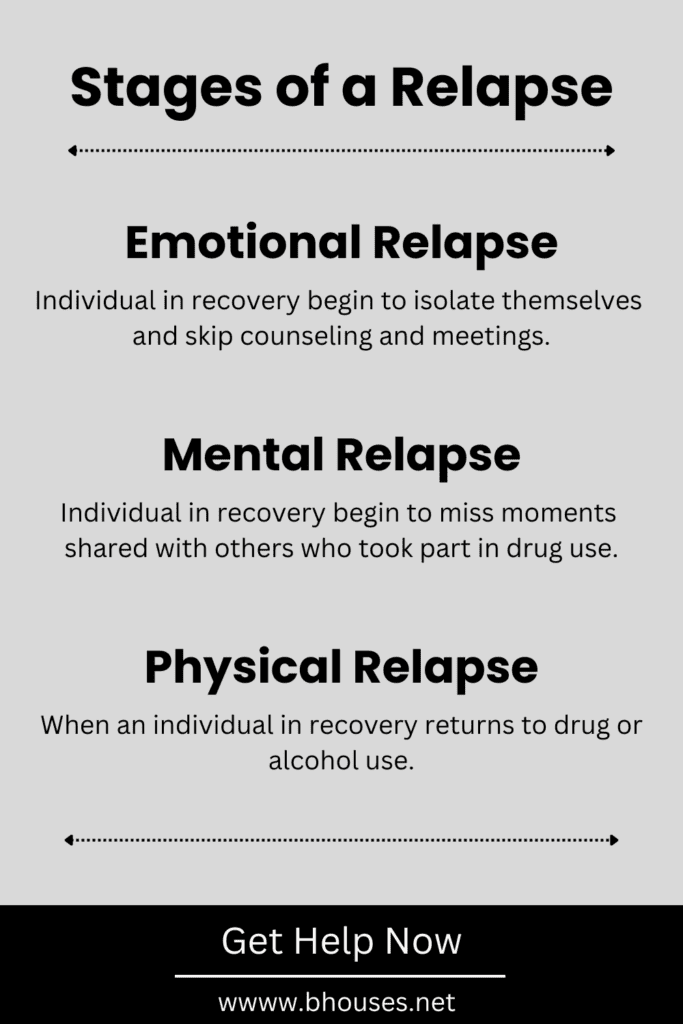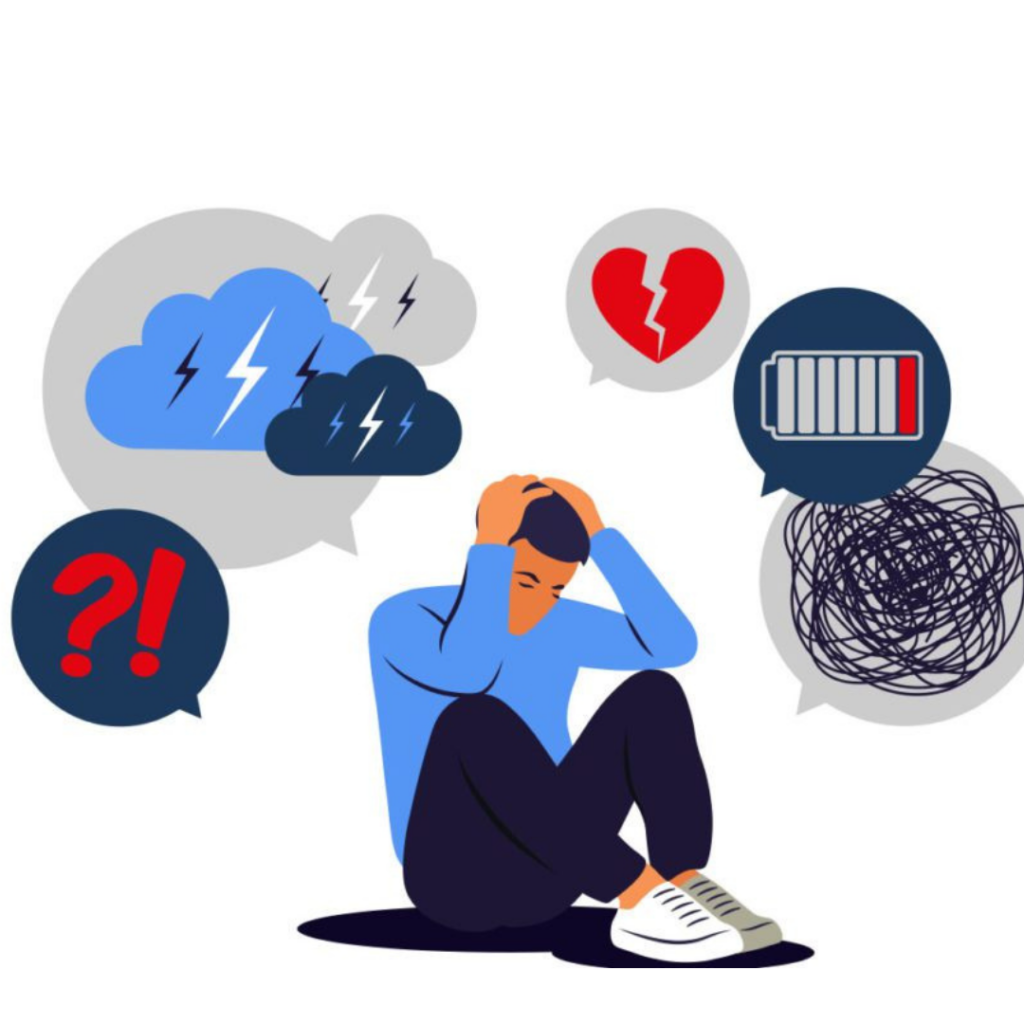Recovery from addiction is a journey marked by both triumphs and challenges. A question that often perplexes individuals and their support networks is, “Why do addicts relapse when things are good?”
Relapse is a reality in addiction recovery. While disheartening, it doesn’t negate progress made or signal the end of the journey. Understanding the reasons behind relapse empowers us to navigate it effectively and resume the path toward a fulfilling life.
In this blog, we’ll delve into the complexities of addiction recovery, exploring the unexpected hurdles during positive times and providing guidance on the crucial question: “What to do after a relapse?“
Understanding the Paradox: Why Good Times Can Lead to Relapse:
1. Overconfidence and Complacency:
Success and stability in recovery can sometimes lead to overconfidence. Feeling accomplished might make individuals think they’ve completely beaten their addiction, causing them to let their guard down and neglect self-discipline.
2. Lack of Coping Mechanisms for Success:
Surprisingly, positive changes in life can trigger a relapse. If people haven’t developed healthy ways to handle success, they might go back to old, harmful habits like substance use.
3. Underlying Psychological Issues:
Even during good times, unresolved psychological issues can come back. It’s crucial to keep addressing the root causes of addiction through ongoing therapy and support.
Navigating Post-Relapse: A Roadmap to Recovery in 7 Steps
1. Acknowledge and Accept:
Facing a relapse without self-judgment is the first step toward regaining control. Embracing acceptance acts as a potent catalyst for fostering positive transformations.
2. Seek Immediate Support:
Connect with your support network – friends, family, or a counselor. Openly share your experience and seek understanding and encouragement.
3. Reevaluate Triggers and Warning Signs:
Identify the triggers that led to the relapse. Reassess your warning signs and strengthen your coping strategies for managing stress, success, and challenges.
4. Return to Professional Treatment:
Consider returning to a structured treatment program, such as outpatient therapy or counseling, to reinforce your commitment to recovery.
5. Adjust Your Recovery Plan:
Collaborate with your therapist or counselor to modify your recovery plan based on the insights gained from the relapse experience.
6. Learn from the Experience:
Transform the experience of relapse into a chance for introspection and personal development. Understand the factors that contributed to it and develop strategies to prevent future occurrences.
7. Implement Positive Lifestyle Changes:
Focus on building and maintaining healthy habits, including regular exercise, proper nutrition, and sufficient sleep. These positive lifestyle changes can contribute significantly to your overall well-being.
Experiencing a relapse does not define your journey toward recovery; it’s a temporary setback in the broader context of growth and resilience. By understanding the complexities of addiction during positive times and taking proactive steps after a relapse, individuals can foster a renewed commitment to sobriety.
Stages of Relapse
The stages of relapse typically encompass three key phases, each marked by distinct characteristics and warning signs. Understanding these stages is crucial for individuals in recovery and their support networks to identify potential challenges and intervene early. Here are the three stages of relapse:

1. Emotional Relapse:
- Characteristics: Emotional withdrawal, increased stress, anxiety, or emotional discomfort.
- Warning Signs: Neglecting self-care, isolation, bottling up emotions, erratic sleep patterns.
- Intervention Strategies: Acknowledging emotions, reaching out for support, practicing self-care, and engaging in healthy coping mechanisms.
2. Mental Relapse:
- Characteristics: Conflicted thoughts about substance use, nostalgia for past use, cravings, and fantasizing about use.
- Warning Signs: Engaging in rationalization or justification for substance use, plotting a relapse, and aligning with potential triggers.
- Intervention Strategies: Increasing self-awareness, discussing thoughts with a support system, attending therapy, and focusing on recovery motivations.
3. Physical Relapse:
- Characteristics: Actual engagement in substance use or the return to addictive behaviors.
- Warning Signs: Consuming substances, engaging in old behaviors, loss of control over usage.
- Intervention Strategies: Seeking immediate professional help, reaching out to support networks, and revisiting or adjusting the recovery plan.
It’s essential to recognize that relapse is not inevitable, and early intervention during the emotional and mental stages can significantly reduce the risk of progressing to physical relapse. Developing coping strategies, maintaining a strong support system, and staying committed to the recovery journey are key elements in navigating and overcoming the stages of relapse.
Understanding Emotional Relapse
An emotional relapse doesn’t fit the traditional relapse mold; rather, it serves as a precursor to a potential physical relapse. This stage is characterized by the resurgence of negative emotions and previously managed unhealthy behaviors from the active addiction period, akin to warning signs flashing on the addiction’s dashboard.
Consider the recovery journey as a driving analogy:
- Active addiction: Navigating with faulty brakes, relying on substances to manage emotions.
- Early recovery: Learning to brake using healthy coping mechanisms, but the vehicle retains memories of old patterns.
- Emotional relapse: The brakes feel weaker, negative emotions resurface like potholes, and there’s a drift toward familiar roads (unhealthy behaviors).
- Physical relapse: Without course correction, there’s a risk of falling back into the ditch of active addiction.
Indicators of emotional relapse include:
- Increased anxiety, depression, or cravings: Uncomfortable emotions, once managed with substances, may reemerge.
- Isolation and withdrawal: Reconnecting with old peers or activities linked to addiction could signal trouble.
- Neglecting self-care: Skipping therapy, meetings, or healthy routines weakens the foundation of recovery.
- Idealizing past use: Romanticizing the “good times” of addiction becomes a risky endeavor.
In the event of an emotional relapse, consider the following:
- Acknowledge the warning signs: It’s not a failure; it’s an opportunity to get back on track.
- Reach out for support: Connect with your therapist, sponsor, or loved ones to strengthen your support network.
- Refocus on self-care: Prioritize healthy routines, therapy, and meetings. Embrace mindfulness and stress-management techniques.
- Seek professional help if needed: Don’t hesitate to involve your therapist or addiction specialist for adjustments to your recovery plan.
Remember, emotional relapse is a cautionary signal, not a predetermined outcome. By recognizing the signs and taking proactive measures, you can effectively navigate this stage and persist on your path toward enduring recovery.
Understanding Mental Relapse
Mental relapse, in the context of addiction recovery, isn’t simply “thinking about using” again. It’s a more advanced stage in the relapse process, following emotional relapse, and characterized by obsessive and intrusive thoughts about returning to substance use.

Examining the features of mental relapse:
1. Intrusive Thoughts and Rumination:
Obsessive fixation on the substance, replaying usage scenarios, and fixating on the perceived pleasure or escape it might provide.
2. Rationalization and Justification:
Minimizing the potential consequences, convincing oneself it’s a one-time occurrence, and generating excuses to justify the desire to use.
3. Planning and Mental Rehearsal:
Strategizing the acquisition and use of the substance, envisioning ways to avoid detection, and mentally preparing for the act itself.
4. Increased Engagement in Addictive Behaviors:
Involvement in alternative addictive behaviors such as gambling, overeating, or risky sexual activities as a means of coping or escape.
Recognizing the significance of mental relapse:
- A warning sign indicating a potential transition to physical relapse.
- An opportunity for timely intervention to prevent further progression.
- Addressing underlying triggers and cravings can halt the progression towards active substance use.
Actions to take if experiencing mental relapse:
- Reach Out for Support: Seek guidance and support from your therapist, sponsor, or loved ones during this vulnerable period.
- Refocus on Self-Care: Prioritize healthy routines, therapy sessions, and mindfulness practices to reinforce coping mechanisms.
- Seek Professional Help if Needed: Don’t hesitate to involve your therapist or addiction specialist for any necessary adjustments to your recovery plan.
Remember, Mental relapse is not a reflection of failure but a signal to course-correct. With proactive measures and support, navigating this challenge becomes possible, allowing you to continue your journey toward sustained recovery.
Understanding Physical relapse
In the journey of addiction recovery, physical relapse marks the final stage – the actual return to active substance use. It’s like stepping back into the storm after braving its edge for a while. While concerning, it’s important to remember that it’s not a personal failure, and it doesn’t erase the progress made.
Key features of physical relapse:
- Using the substance of abuse: This is the defining characteristic. Whether it’s a single instance or prolonged use, it signals a shift back to active addiction.
Understanding the stages leading to physical relapse:
- It’s crucial to remember that physical relapse is rarely a sudden event. It typically follows emotional relapse, marked by increased anxiety, cravings, and unhealthy behaviors, and then mental relapse, characterized by obsessive thoughts, planning, and justification for using.
- Recognizing these earlier stages is crucial for intervention and course correction before reaching physical relapse.
What to do if you experience physical relapse:
- Seek immediate support: In case of a physical relapse, seek prompt support by reaching out to your therapist, sponsor, loved ones, or addiction specialist without any delay.
- Don’t isolate yourself: Reconnect with your support system. Their understanding and compassion are essential for healing.
- Reassess your recovery plan: Analyze the triggers and factors that led to the relapse. Discuss adjustments to your therapy, medication, or support network with your specialist.
- Remember: Relapse is a setback, not a sentence. Treat it as a learning opportunity and recommit to your recovery journey with renewed strength and support.
Remember, physical relapse doesn’t erase your progress or define your worth. With proactive support and ongoing commitment, you can navigate this challenge and continue building a fulfilling life in recovery.
The Bottom Line
In conclusion, understanding what to do after a relapse is crucial in navigating the challenges of recovery. Facing a relapse should not be viewed as the end of the road but rather as the beginning of a new chapter in the journey towards recovery. It’s crucial to recognize that setbacks are a natural part of any transformative process, and instead of succumbing to despair, individuals should embrace the opportunity for growth and self-discovery.
By acknowledging the relapse, understanding its triggers, and implementing the lessons learned, one can emerge stronger and more resilient. This pivotal moment is a chance to reassess goals, refine coping strategies, and foster a renewed commitment to the recovery journey. With the right mindset and support system in place, individuals can turn a relapse into a stepping stone towards lasting recovery, illustrating the remarkable capacity for resilience and the potential for positive change.
Remember, it’s not over; it’s a new beginning, and knowing what to do after a relapse plays a central role in shaping that path forward.
Celebrate your victories, learn from your setbacks, and keep moving forward. What questions or experiences do you have regarding relapse and recovery? Share your thoughts and stories in the comments below – together, we can build a supportive community where vulnerability and healing thrive.










